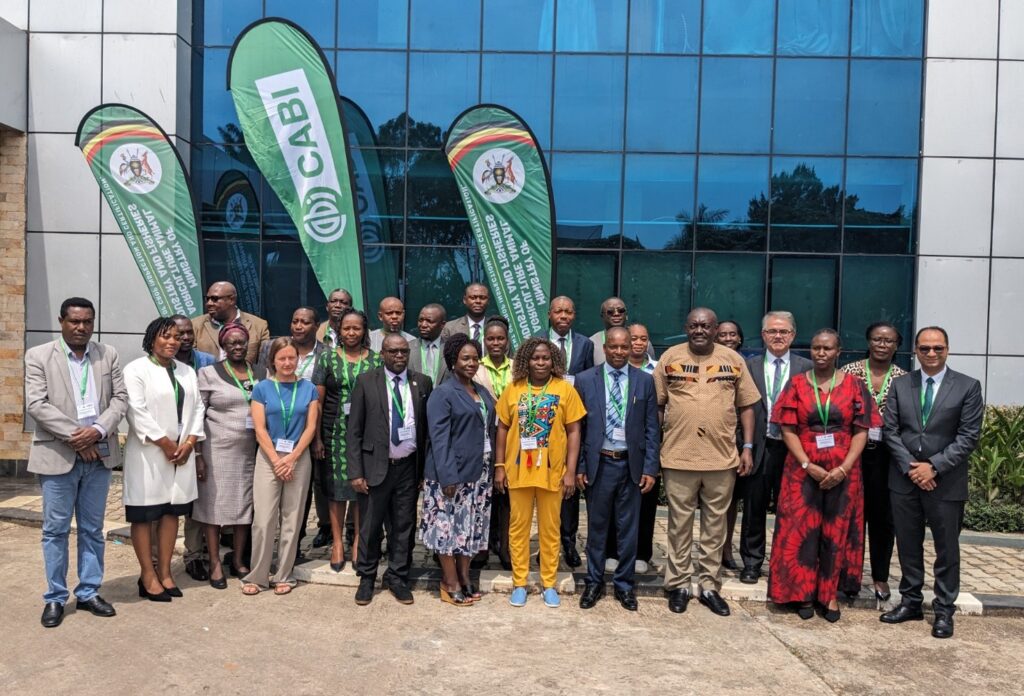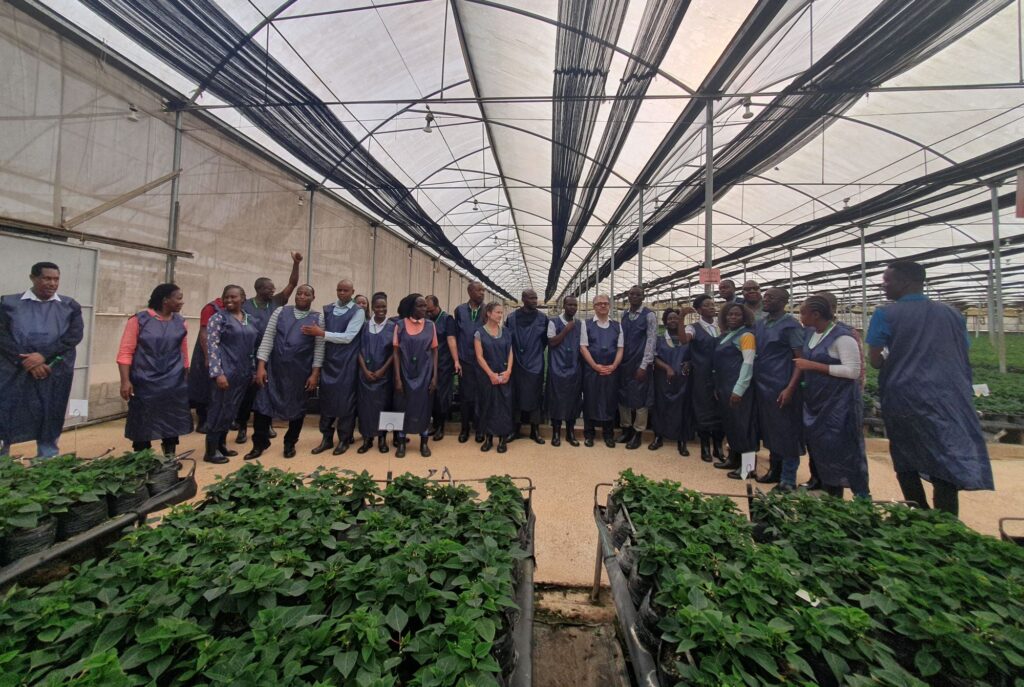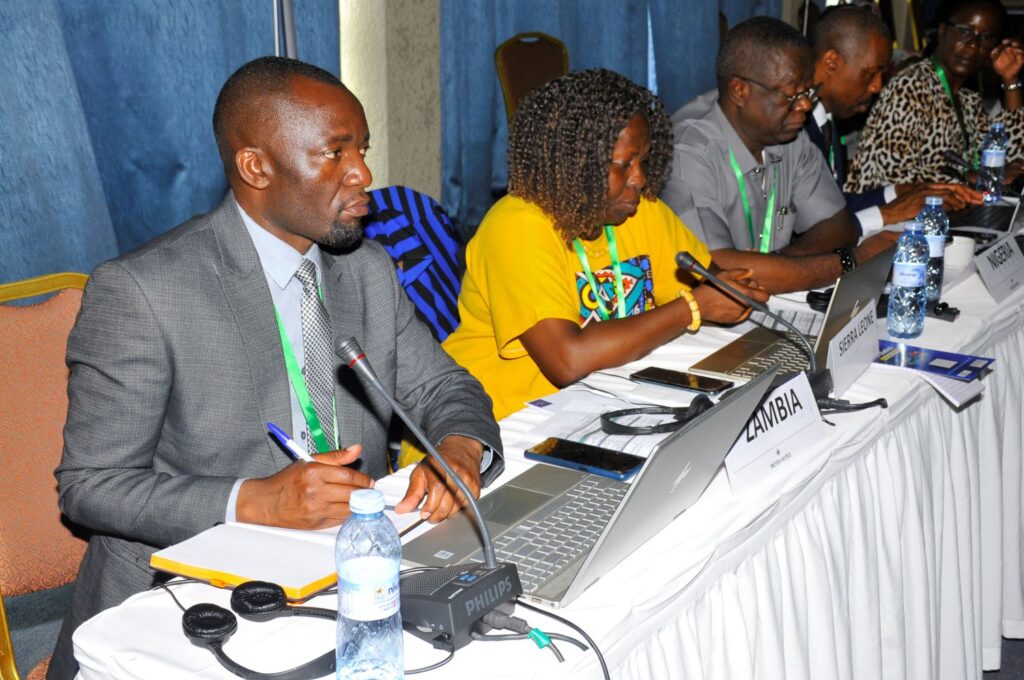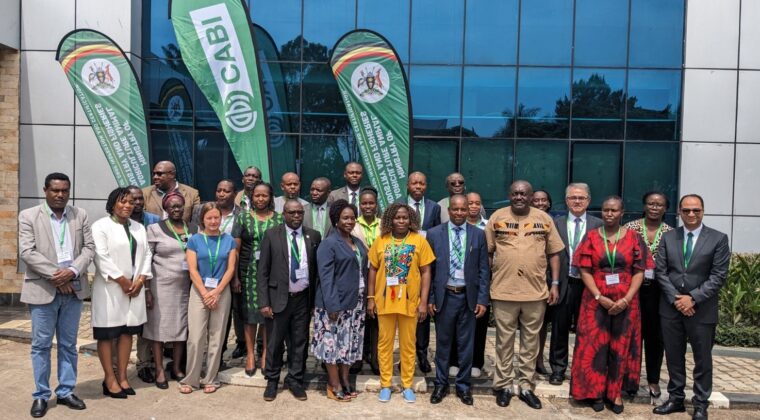Fresh hope for ePhyto uptake and implementation in Africa
African Member States have been challenged to engage an extra gear in ensuring uptake and successful implementation of the electronic phytosanitary certification (ePhyto), which has proven to ease up numerous challenges in facilitating trade and plant health management across the continent and beyond.
The challenge was made at a recent workshop in Entebbe Uganda which gathered the Member States, plant health experts, policy and decision makers and other stakeholders meant to promote the uptake of ePhyto in Africa.
It was organized jointly by Centre for Agriculture and Bioscience International (CABI), the United States Department of Agriculture (USDA) and Inter-African Phytosanitary Council of the African Union (AU-IAPSC) and the International Plant Protection Convention (IPPC).

Participants to the ePhyto awareness workshop in Entebbe, Uganda.
The workshop provided great insights into the benefits of embracing the solution for the promotion of plant health in the continent, trade facilitation and these were shared through presentations, discussions, knowledge sharing, numerous information exchange practices and field visits among others.
CABI, AU-IAPSC, USDA and IPPC all have fresh hope that following the workshop, Africa may see more of its Member States implementing the ePhyto as currently only 10 out of 50, representing 18% of African Member States are fully engaging through the IPPC ePhyto solution. Globally, a total of 75 countries are successfully exchanging phytosanitary data through the IPPC ePhyto Hub.
The ePhyto solution is aimed at improving the management of plant health risks by reducing challenges associated with paper certificates. Electronic certification facilitates trade by increasing the security and efficiency of government certification processes.
Dr Sandrine Bayendi Acting Coordinator for AU- IAPSC said the workshop was crucial as ePhyto remains a key component in the successful implementation of the African Continental Free Trade Area (AfCFTA) as it requires an improved electronic certification system.
“The AfCFTA is one of the flagship projects of African Union’s Agenda 2063 so any such solution that drives that agenda, and in our case to help improve management of plant health, is fundamental. This meeting will set a new pace and challenge ourselves with new targets for enhancing the ePhyto uptake at a continental level,” she said.
AU-IAPSC Senior Scientific Officer Luiza Munyua shared with the participants the journey to the birth of Plant Health Strategy for Africa (PHSA) whose successful implementation ties strongly with sustainable solutions such as ePhyto.
She said the strategy’s end goal is improved livelihoods, vibrant trade and food and nutrition security in Africa through strengthening all components of the plant health systems, and as well to realize the aspirations of the AfCFTA.
Dr Christine Alokite, representative of the Regional Director of CABI highlighted how the gathering speaks to its commitment to plant health evidenced by many initiatives including that CABI had developed and made available effective pest identification tools to the benefit of farmers and technical partners.

The visit to Wagagai cold-storage rooms in Kampala where inspection, sorting, packaging and storage operations take place.
Earlier Dr MaryLucy Oronje, CABI Scientist-SPS said despite the low uptake of the IPPC ePhyto Solution, increased and continuous engagement such as the one commenced at this workshop would guarantee an increased uptake as Member States would now be more aware of opportunities available through the solution as well as how to deal with challenges.
“In light of such challenges [inadequate legal frameworks to support ePhyto adoption, limited funds available, and inadequate technical capacity of staff to support its rollout], the workshop would raise awareness of the benefits of the IPPC ePhyto solution but also to help AU Member States identify and overcome the various barriers to its implementation,” she said.
Dominique Menon of IPPC while reiterating IPPC’s continued support to ephyto implementation, challenged National Plant Protection Organizations (NPPOs) to own up the phytosanitary certification as their sole responsibility and take the necessary measures to get it off the ground in their countries.
“Countries should also make arrangements with trading partners and make strides to learn from those that are already doing well,” he said.
He shared on how Member States can leverage the IPPC’s strategic framework 2020-2030 whose development agenda among many items includes harmonization of electronic data exchange of which ephyto becomes key.
Through the deliberations and presentations, the meeting also took time to identify specific common issues relating to ePhyto that need to be addressed at an international, regional or country level.
Member States through NPPs representatives, shared how they are dealing with such challenges and some best practices being applied to alleviate the same.

The IPPC ePhyto solution aims at improving the management of plant health risks by reducing challenges associated with paper certificates, thereby making trade between countries safer, faster, and cheaper.
It is a document issued by the exporting country to the importing country as a guarantee that the plants, plant products, or other regulated objects described therein meet the conditions set out by importing country.
Recommendations already coming from the meeting are obliging all present relevant stakeholders to double their efforts and push more for ePhyto success.
The participants also visited Wagagai cold-storage rooms in Kampala where inspection, sorting, packaging and storage operations take place. Through the visit, they appreciated the level of phytosanitary and other requirements demanded by such production.
The meeting is running from the whole week from 27-30 June in Entebbe, Uganda.



